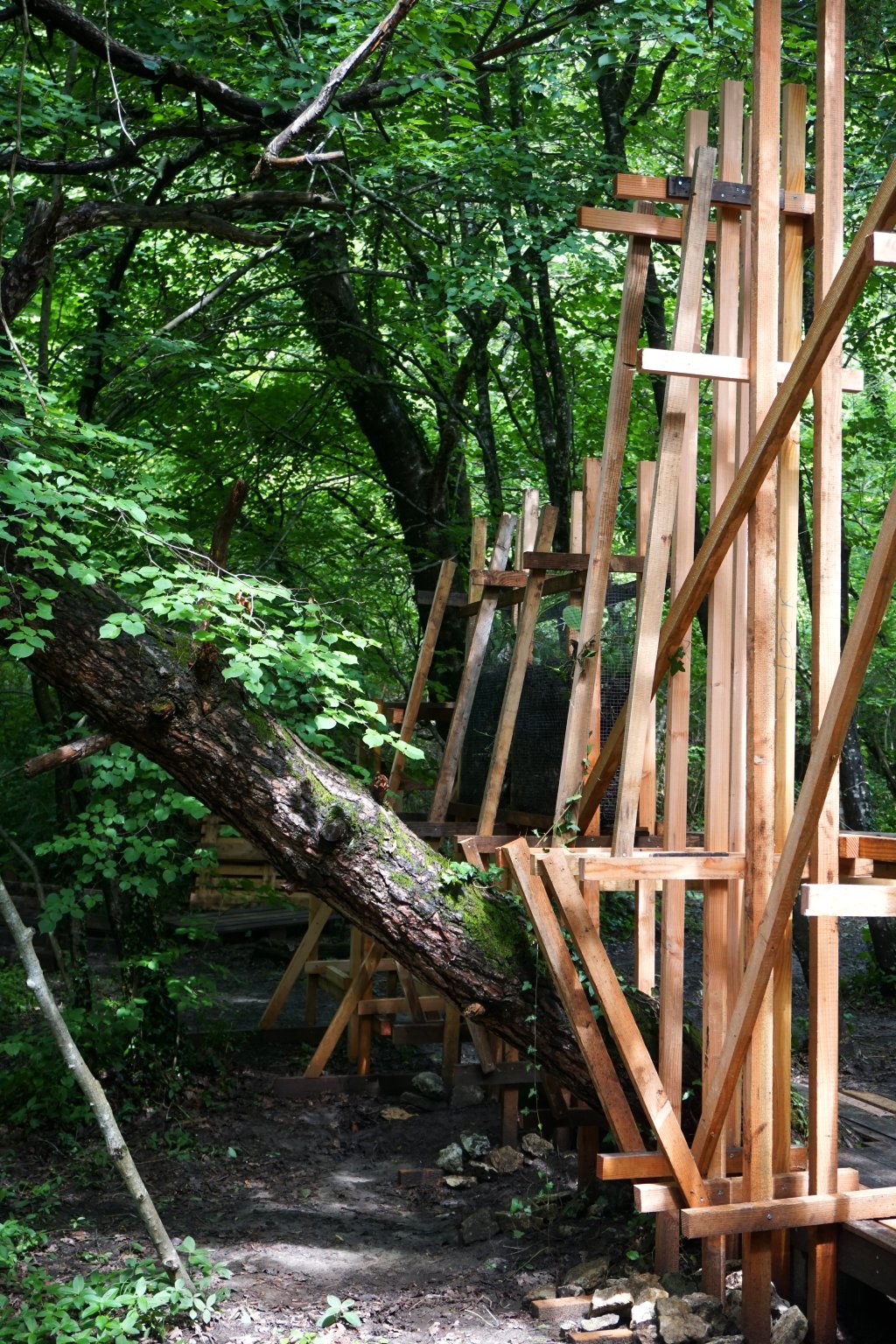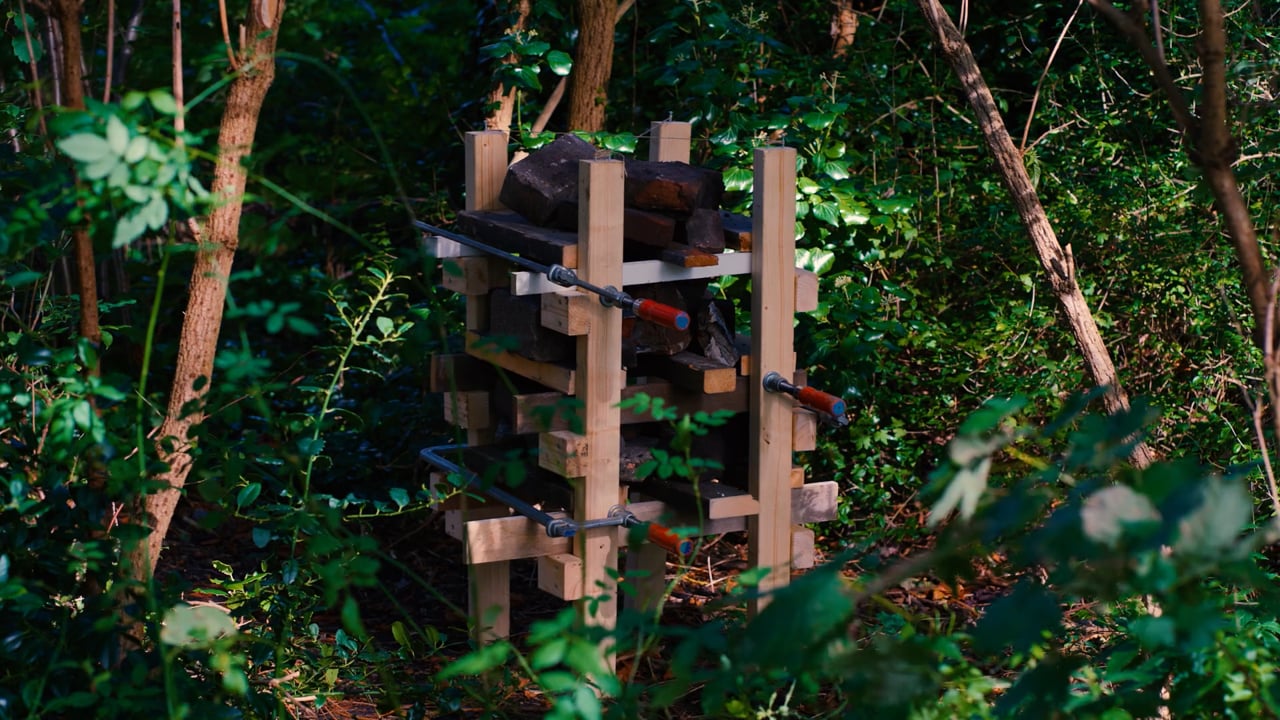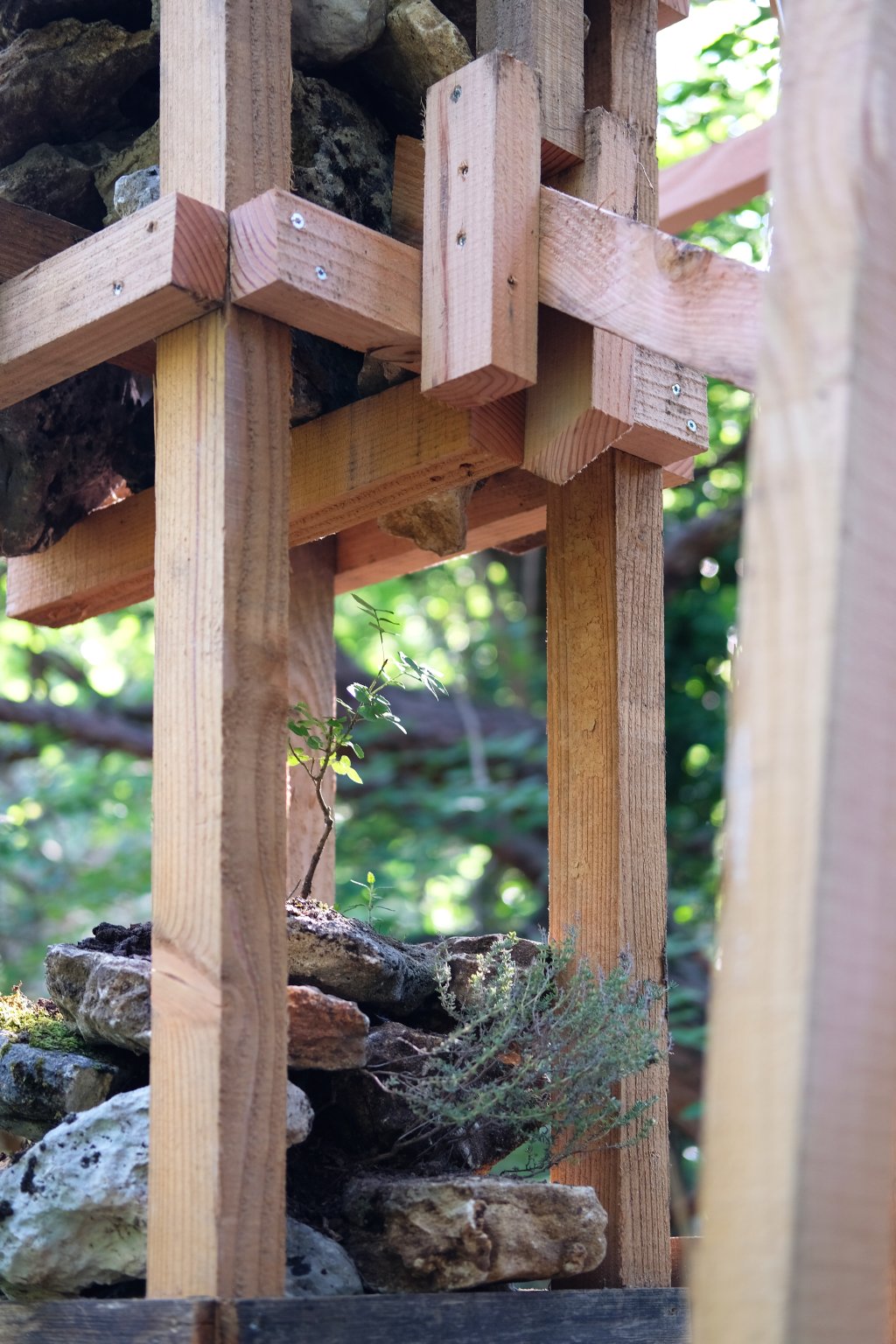The Re-generative Ruin
Within the context of the current ecological crisis, designers must re-think their relationship to the extractive culture characterizing building practices. We question the relation between construction and consumption, creation and depletion, growth and de-growth. How can deconstruction act to generate space for unknown relationalities to emerge?
The Re-generative ruin, a research-through-design project, explores how deconstruction can be leveraged through design as a generative act. We designed a stage for a music festival that took place in the south of France inspired by gothic and roman ruins common to the area. Over time, these ruins have become absorbed into the landscape, in their decay playing host to new ecosystems. Only in their abandoned, deconstructed, post-use state, does a new space emerge for alternate, unknown relationalities, hosted on a scaffolding comprised of anthropogenic decay.
The stage was designed for its human functioning – to host multiple performers for a 48hr festival –
but also to evolve and open itself up to use by other creatures following its deconstruction. The stage was embedded with several ‘regenerative devices’ designed to activate over time through decomposition, deconstruction, and decay. A rock tower was embedded with soil and plant species, equally designed as an attractive space for birds to dwell; A wall was created using organic compost from the festival; and a column of wood comprised of the off-cuts of the stage was left to rot, playing host to insects and detritivores of various kinds. Following the festival, the stage was partially deconstructed, and offered to the forest to do with it as it will.


The project explores the contradiction between the side-effects of goal-oriented design and construction practices on more-than-human ecosystems. Calling for a U-turn, we explored design practices that un-build the power structures inherent in design focused on achieving our human objectives with certainty. We examined how to derive outcomes from inter-actions between human designers and more-than-human agents: namely, the ecosystem that is a permanent resident in the valley hosting the festival.
As an example, a herd of grazing animals moving over a grassland provides vital soil nutrients in the form of manure, fertilizing, and supporting plant growth.
How might this analogy be extended to the context of Design, where temporary human artifacts leave behind something that functions symbiotically with the ecosystem?

Share
Contacts
- -Riel Bessair.bessai@tudelft.nl
- -Pedro Daniel Pantaleone
- -Studio-Method



